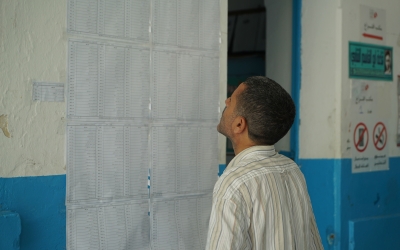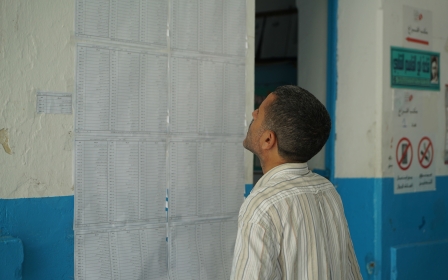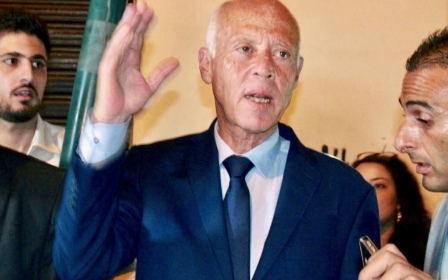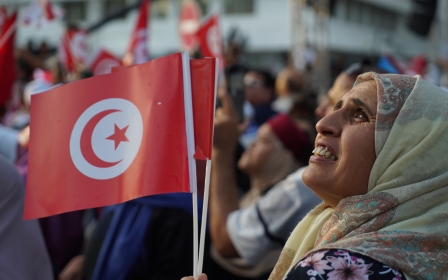Exit polls indicate Ennahda leading in Tunisia parliamentary election

Exit polls showed the Ennahda party leading that of a jailed business tycoon in Tunisia's legislative polls on Sunday, weeks after a presidential election that began reshaping the country's post-Arab Spring political landscape.
Polling stations for the seven-million-strong electorate closed at 6pm local time. Ennahda and Qalb Tounes - led by detained business tycoon Nabil Karoui - were both swift to claim victory
Ennahda garnered the most votes in the parliamentary election, an exit poll by Sigma Conseil broadcast by state television showed, according to Reuters.
The poll showed Ennahda with 17.5 percent of the vote and its main rival, the Qalb Tounes party of detained media mogul Nabil Karoui, with 15.6 percent of the vote.
The AFP news agency reported that two exit polls showed Ennahda in the lead with 40 seats out of 217, while Qalb Tounes was in second, with one pollster giving it 35 seats, and another 33.
New MEE newsletter: Jerusalem Dispatch
Sign up to get the latest insights and analysis on Israel-Palestine, alongside Turkey Unpacked and other MEE newsletters
Still, preliminary official results are not expected until Wednesday.
In the run-up to the legislative vote, Ennahda and Qalb Tounes officially ruled out forming an alliance, and with a plethora of parties and movements running, the stage could be set for complex and rowdy negotiations - or even a second poll.
The legislative vote comes after candidates aligned with traditional political parties were eclipsed by independent runners during the first round of presidential polls last month.
In the first round of the presidential vote Karoui, held since August on money-laundering charges, came second behind Kais Saied, an independent law professor.
Ennahda has said it would back Saied against Karoui in the second round of the presidential election next week, MEE reported.
Courts rejected several appeals for Karoui’s release during campaigning.
The sidelining of the ruling political class in the first presidential round on 15 September was rooted in frustration over a stagnant economy, high unemployment, failing public services and rising prices.
The party that emerges as the largest will have to negotiate with other factions to secure the support of a minimum of 109 deputies in order to obtain a parliamentary majority.
"Negotiations will probably take two weeks," said political analyst Youssef Cherif.
If confirmed, the result would leave Ennahda, a member of several coalitions since the 2011 revolution, needing to join with numerous rivals and independent members of parliament to gain a working majority.
If it cannot do so within two months, the president can ask another party to try. If it also fails and the deadlock persists, there would be another election.
Middle East Eye delivers independent and unrivalled coverage and analysis of the Middle East, North Africa and beyond. To learn more about republishing this content and the associated fees, please fill out this form. More about MEE can be found here.





